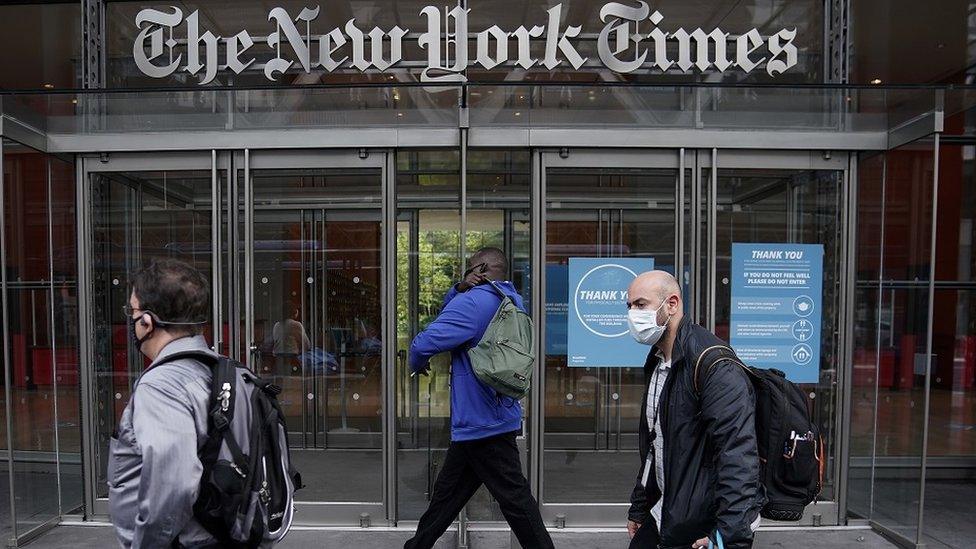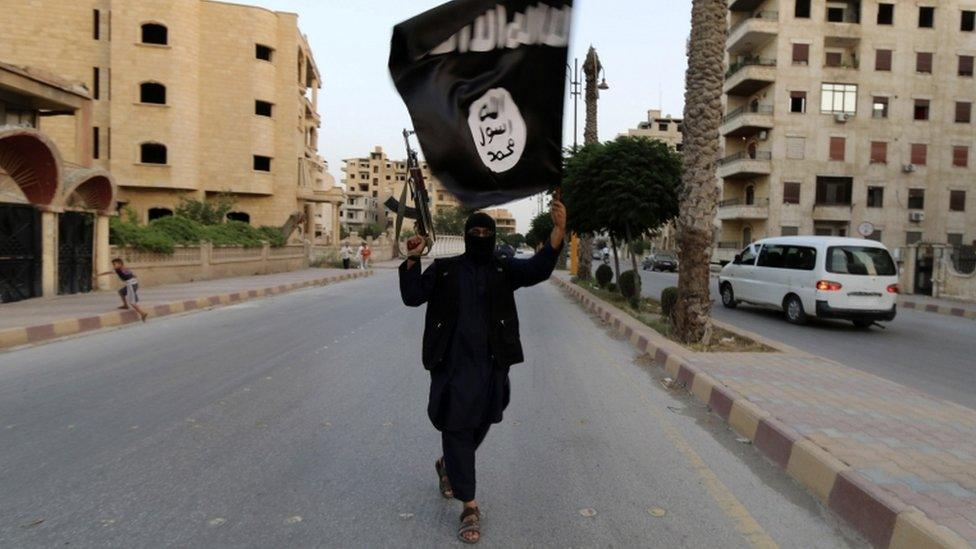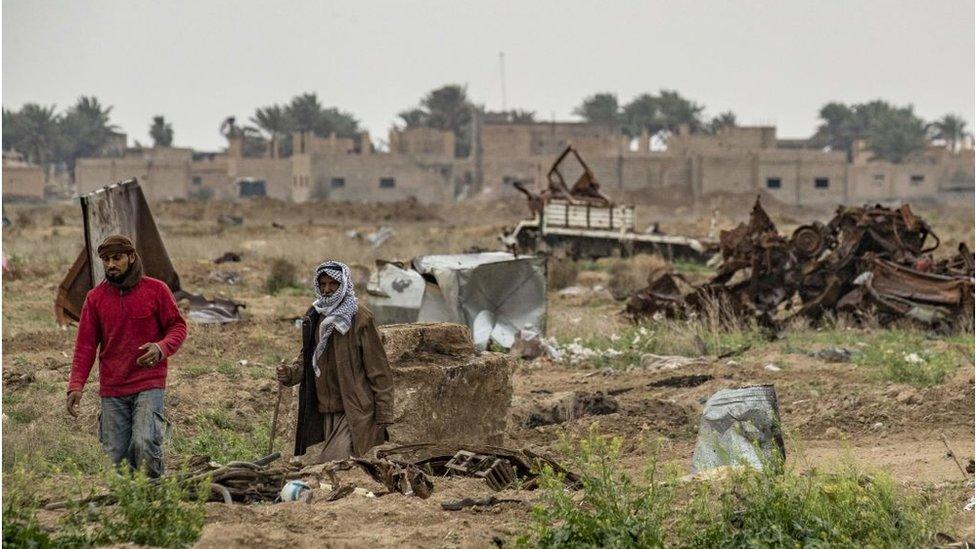Caliphate: NY Times loses awards for Islamic State podcast over false reporting
- Published

The New York Times has returned an award and had another withdrawn after it found discrepancies in its podcast on the Islamic State group.
After a two-month investigation, the newspaper said the podcast, Caliphate, failed to meet its editorial standards.
In the 2018 series, Shehroze Chaudhry, one of its central figures, claims he travelled to Syria and joined IS.
But the Times said on Friday that it found "a history of misrepresentations" about his involvement with the group.
As a result, it has returned a Peabody Award, external for the podcast. The Overseas Press Club said it had also rescinded its Lowell Thomas Award, external given to the show's producers.
Dean Basquet, the Times' executive editor, said in a podcast on Friday that "this failing wasn't about any one reporter, external. I think it was an institutional failing."
The podcast's host Rukmini Callimachi - a four-time Pulitzer Prize finalist - has been reassigned from her duties covering terrorism.
In a statement on Twitter, Ms Callimachi apologised for "what we missed and what we got wrong."
Allow X content?
This article contains content provided by X. We ask for your permission before anything is loaded, as they may be using cookies and other technologies. You may want to read X’s cookie policy, external and privacy policy, external before accepting. To view this content choose ‘accept and continue’.

The paper began its review of Caliphate after Pakistan-born Mr Chaudhry was arrested by Canadian police in September, and charged with hoax-terrorist activity.
The Canadian broadcaster CBC used his alleged IS name, Abu Huzaifa al-Kanadi, in a 2017 report, in which he described lashing a man with a whip as part of his duties for the violent Islamic group, but said he never killed anyone.

IS once controlled swathes of territory in Syria and Iraq
His account prompted a debate in Canada's House of Commons, when the opposition questioned why he was allowed to still live in the country.
Then, in 2018, the New York Times aired an interview with Mr Chaudhry on the Caliphate podcast, in which he said he'd executed people for IS.
But after its latest internal investigation, the Times said it had found "no corroboration" that he committed the atrocities he described.
It said at least one photo posted on his social media, allegedly showing him in Syria, was a copy of widely available news photography, published by Russian news agency Tass. Other images had been posted on Twitter by Syrian anti-war activists years before his claim.
According to the Times, Canadian and US officials have said they are confident Mr Chaudry is a fabulist , externalwho never travelled to Syria, and concocted stories to escape from his more mundane life in a Toronto suburb.
Mr Chaudhry, who works at his family's restaurant in Oakville, near Toronto, has not publicly commented on the charge against him.
His lawyer told the New York Times that Mr Chaudhry was not guilty and would contest the "hoax-terrorist activity" charge, which carries a sentence of up to five years.

You may also be interested in:
Return from IS: The American teenager 'happy' to be back home in the US
Related topics
- Published1 October 2020
